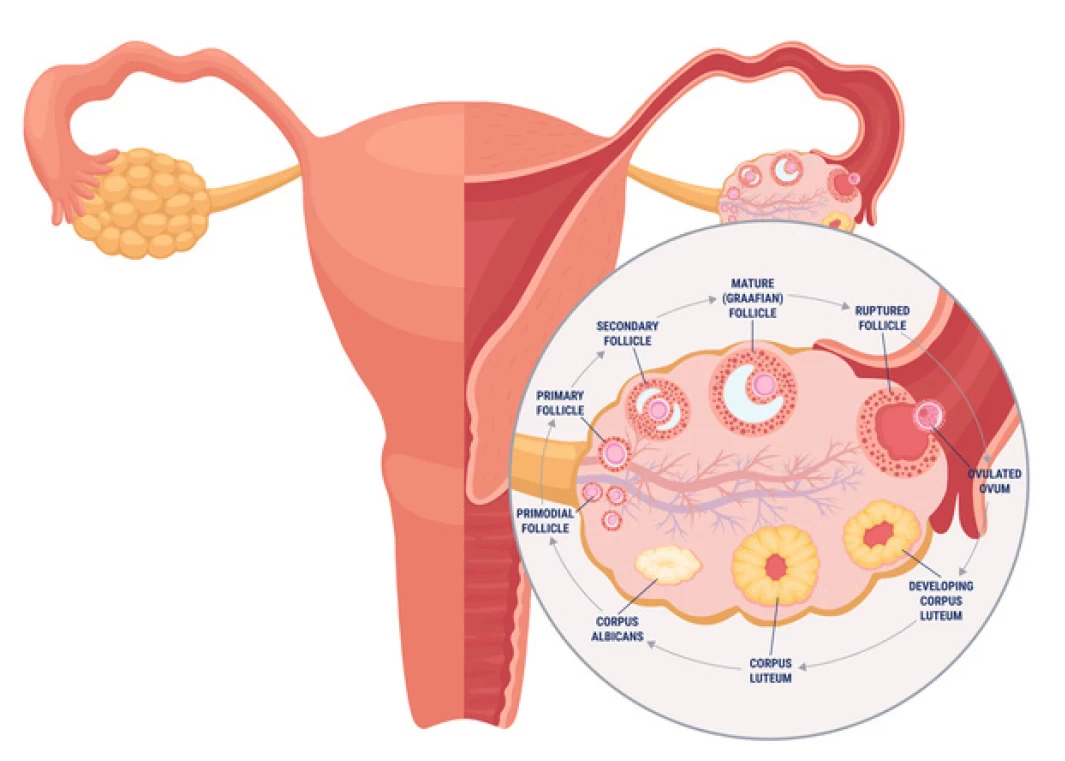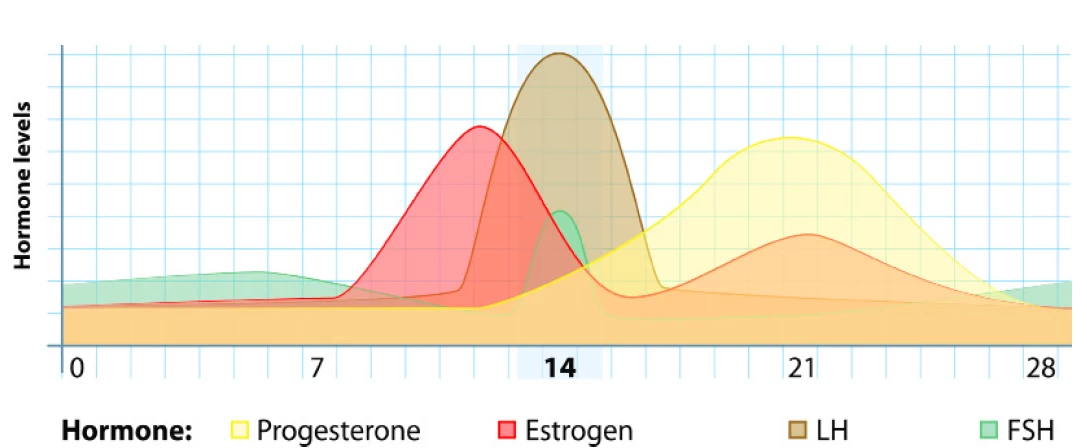
AM I OVULATING?
Revised 2023
What is ovulation?
Ovulation is the release of an egg from a woman’s ovaries and is essential for getting pregnant. Ovulation is spontaneously triggered about 36-40 hours after blood levels of a hormone called luteinizing hormone (LH) rise. This is called the LH surge. Once released from the ovary, the egg is picked up by and travels down the fallopian tube where it can meet sperm to become fertilized.
Why is ovulation important?
A problem with ovulation is a common cause for infertility. For a couple who is trying to achieve pregnancy, knowing when the woman is about to ovulate can be particularly helpful in planning when to have sex. If a woman is trying to find the reason she is not getting pregnant, it is helpful to know if she is ovulating. Having regular menstrual periods between 21 and 35 days in length accompanied by menstrual cramps is a good indication of ovulation.There are several ways to test for ovulation, including:
- the basal body temperature (BBT) chart,
- urine test kits to measure LH levels,
- blood tests to measure levels of certain hormones, and transvaginal ultrasound.
What tests are available to check for ovulation?
Blood and Urine tests
Blood tests to measure hormone levels Estradiol (a type of the hormone estrogen) is produced by the follicle as it grows, and levels go up quickly just before ovulation. If fertility medicines are being used to cause a woman to ovulate, estradiol levels are checked more often to keep an eye on the growth of the follicle, but it is not used to tell you when you might ovulate.
A rise in LH levels in the blood can predict when the follicle (sac where the egg ripens) is ripe and ready for ovulation. Because LH is released in pulses or short bursts, the LH surge is not always found by a single blood or urine test.

Increased progesterone levels in the blood a week before the menstrual period usually indicate ovulation has occurred but cannot predict when it will occur. Urine test kits to measure luteinizing hormone (LH) levels These home test kits are available at drug stores and show changes in the level of LH in a woman’s urine.
Since LH hormone builds up in the urine, once it is detected in the urine, ovulation usually takes place within 12 to 24 hours (usually about 14 days before the start of a woman’s menstrual period).

For women with irregular periods, urine testing should be timed according to the earliest and latest possible dates one is expected to ovulate. Urine testing for LH surge should begin at least 2 days before the expected day of ovulation and continue until the LH surge or through day 20.
Once an LH surge is documented, it is no longer necessary to continue testing during that cycle. Occasionally, ovulation may not occur in a cycle despite an LH surge. If ovulation is not detected in 2 or more cycles in a row, there may be a problem with ovulation, and you should discuss this with your healthcare provider. Some fertility test kits check for both LH and estrogen in the urine. This does not necessarily increase your chances of pregnancy and should not be used if you are taking medicines to help you ovulate.
Transvaginal ultrasound
The egg develops within a part of the ovary called the follicle (a fluid filled sac). As the egg gets ready to ovulate the follicle grows larger. Follicle growth can be measured with ultrasound, a technique which uses sound waves to produce an image on a monitor screen using a tampon-like probe placed in the vagina. Before ovulation, the follicle is thin-walled and filled with fluid. Ovulation generally happens when the follicle measures between 1.8 and 2.5 centimeters.
For women having treatment for fertility, ultrasound may help time intercourse or insemination. In women taking fertility drugs, ultrasound may be done on several different days during the menstrual cycle to measure and monitor each follicle.

Basal body temperature (BBT) chart
Daily measurement of basal body temperature can help determine if ovulation has occurred. However, BBT charting is only an estimate of ovulation timing and can confirm that ovulation has happened but will not predict when it might occur. Although not very helpful or accurate to time intercourse, it is an inexpensive, easy way to gather information at home.
A Final Thought
Although determining if and when ovulation is occurring might seem frustrating and time-consuming, it is often an essential step toward achieving pregnancy. It is important that women work with their healthcare providers to decide which method of ovulation detection is best for them. If these tests indicate that the woman is not ovulating, or that she has irregular cycles, treatments are available to correct the problem and increase the chances of a successful pregnancy.
Fact Sheets/Booklets
View more fact sheets and booklets written by the ASRM Patient Education Committee.
Menopausal Transition (Perimenopause): What Is It?
The menopausal transition (perimenopause) is the period that links a woman’s reproductive (childbearing) years and menopause.
Osteoporosis
Osteoporosis and osteopenia are conditions of having low bone mass (density).
Hyperprolactinemia (High Prolactin Levels)
Prolactin is a hormone produced by your pituitary gland which sits at the bottom of the brain.Female Fertility
Find a Health Professional












